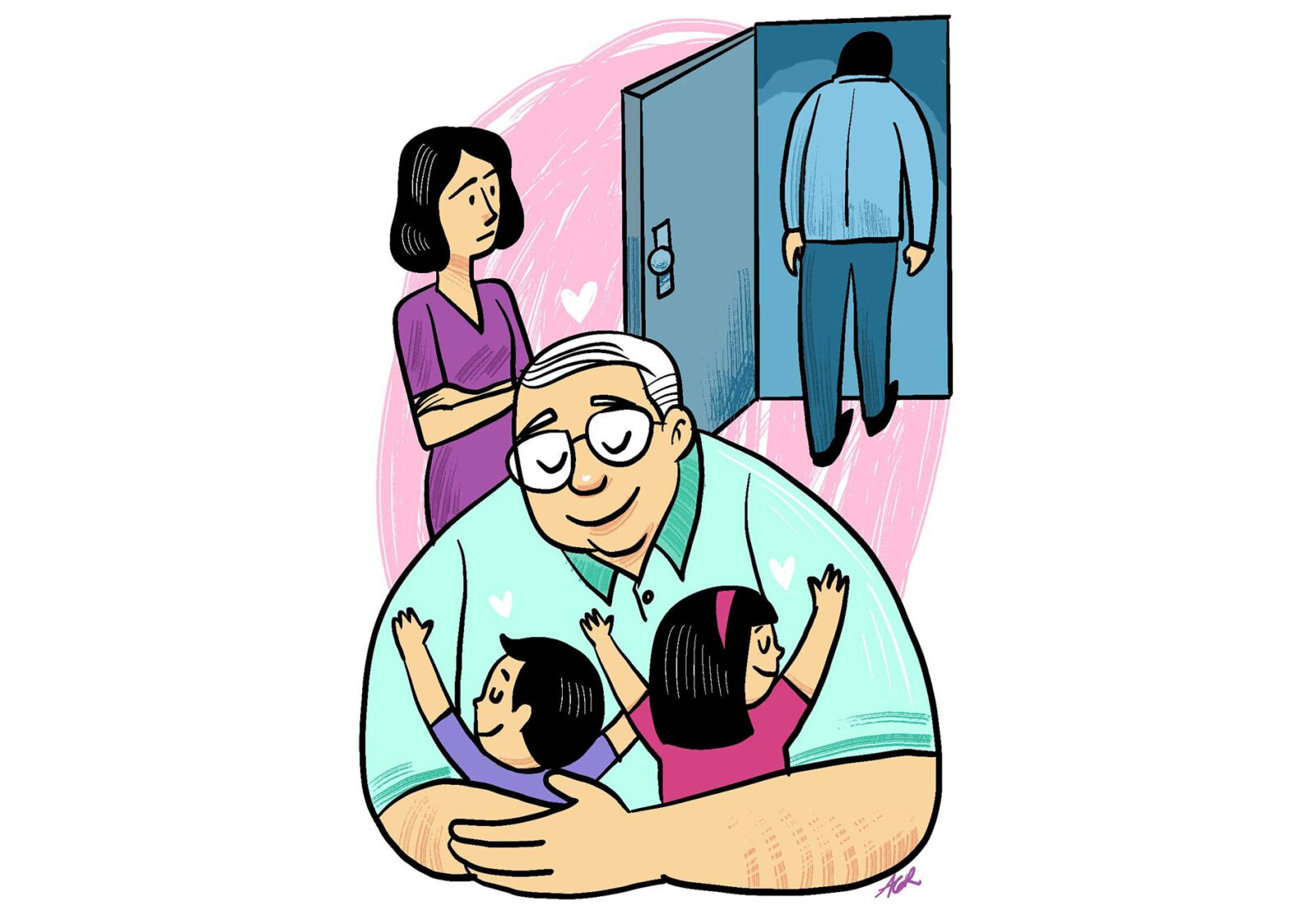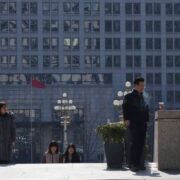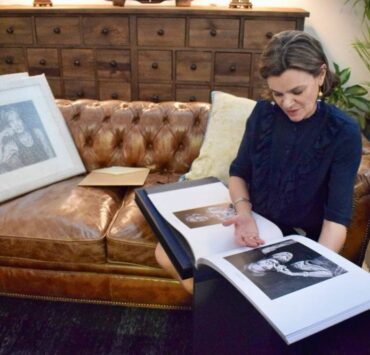The man who left and the man who stayed

My father didn’t grow up with a good example. He could’ve passed down what he received, and let bitterness shape him. But he didn’t. He became the best one many know. He raised us with tenderness, discipline, humor, and honor, loving deeply, daily, and without shortcuts.
When the man I chose to father my children decided not to rise to the role, my dad stepped up again: not with rage or revenge, but with a level of grace I still aspire to. He counseled, not condemned. He extended kindness to those who showed me none. He held the higher ground even when it cost him.
But grace is not the same as denial. Unlike others who chose to throw blind support behind clear wrong, who welcomed into their fold someone who played a central role in our family’s undoing, my father never lost sight of what was right. He never needed to rewrite the truth to stay kind. His decency never came at the expense of mine. That’s what a real father does.
He didn’t just raise his kids. He kept showing up long after they’re grown. He kept showing his grandkids what integrity looks like when it’s lived, not just preached.
I have a good father, so my kids still do. He broke cycles, bore witness to our pain without adding to it, and built a legacy I’m proud to stand in. My dad remains the standard, proof that good men still exist.
The words that broke us
The kids heard firsthand his reasons for leaving: his version of events and justifications. When asked what all this might mean for them, for me, he brushed it off. He insisted it was all simply a matter of choice.
He didn’t flinch. He just said it, like it was nothing. When I reminded him of the vows he made to me, he simply said, “I changed my mind.” Not in rage. Not in shame. Just… fact.
It was painful to hear. It was the provoking, dismissive calm in his voice that undid me. As if marriage vows were optional. As if betrayal could be reasoned away. As if hearing their father say he no longer stood by the vows he made was just a footnote.
They heard not just the words, but the weight of them. Yet over a year later, they’re told “there are two sides,” as if they weren’t there. As if their reality could be revised.
Now we live with the ache of what they’ve learned: that sometimes, the people who are supposed to love you most can walk away from their role without acknowledging the pain it caused.
He changed his mind. As if commitment were a contract you could cancel midstream. As if breaking your children’s world were as casual as changing dinner plans.
My kids know. Not the sugarcoated version, or the filtered, quiet kind of truth. They didn’t hear it from me; they heard it for themselves. I’m left holding what’s left of our family together. But it also made one thing painfully clear: Our children need a counter-example, proof that commitments matter, and that change begins with accountability.
Teaching what love looks like
How do I parent through this?
How do I hold the line between honesty and harm? Well, I won’t lie anymore to protect his image; the kids already know too much. To pretend otherwise would only teach them that truth is negotiable.
But I won’t poison them with bitterness either. I say, “Yes, it hurt. No, it wasn’t right. And no, that doesn’t mean it’s your future.” Then I fortify that truth with stories of other survivors, like my parents.
I teach them what love should look like. Not obligatory or perfect, but real, present, and accountable. By demonstrating how love means showing up when it’s hard, admitting when you’re wrong, keeping your word, and taking responsibility for how you affect others.
They’ve seen betrayal, but they’ll also learn what healing looks like: ugly, slow, and nonlinear. I’ll show them how to live with integrity, even when others don’t.
“Changing your mind” might be how he gets to sleep at night, but I won’t let it become theirs. I remind them that they are not doomed to repeat this story, that they can love with courage, not cowardice. Patterns may run in families, but so does power, and it can be reclaimed.
I let them feel. Myself too. “It’s okay to be sad. Or mad. What happened wasn’t fair.” What I won’t do is silence them to keep the peace. Silence is its own kind of violence. Pretending doesn’t protect, it only confuses, as you’re left to fill in the blanks.
We make room for healing, not hiding. We can use tough times like this to grow stronger and learn how to treat others better. We write, draw, talk. Or just sit in shared sadness, reminding each other: “We’re still here.” Then I find ways to say: We can write a different story—together.
I parent forward despite him. We talk about boundaries and values: “Sometimes people hurt others. That’s not okay. What matters is owning our actions and keeping our word.”
The challenge is protecting their peace, even when I’m breaking, exploding, and apologizing. Sometimes it just means watching a show with my kids and laughing, like my life isn’t held together by duct tape. Because their peace is worth protecting, and so is mine. I am determined to make them emotionally literate, fluent in both love and limits.
Amid the trauma-induced hypervigilance, it’s tricky to remember that we are not what happened to us, that we are more than his choices.
Generational cycles don’t break on their own. They break with intention, and with parenting that dares to look truth in the eye.
We are not a broken family; we are a family healing out loud. His words shattered something in us, but not everything. We can kintsugi our way back.

















